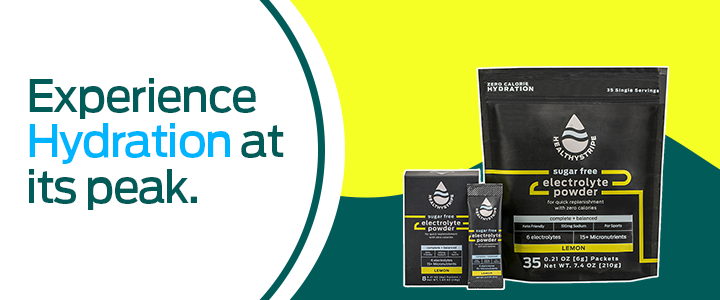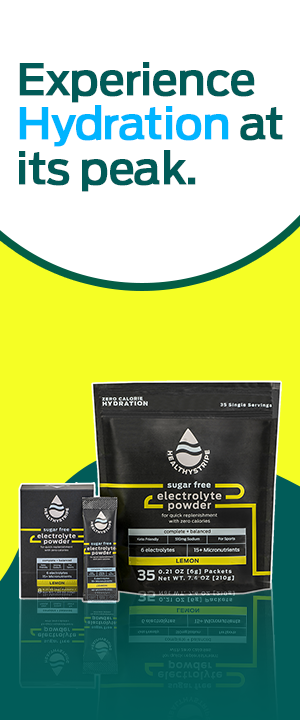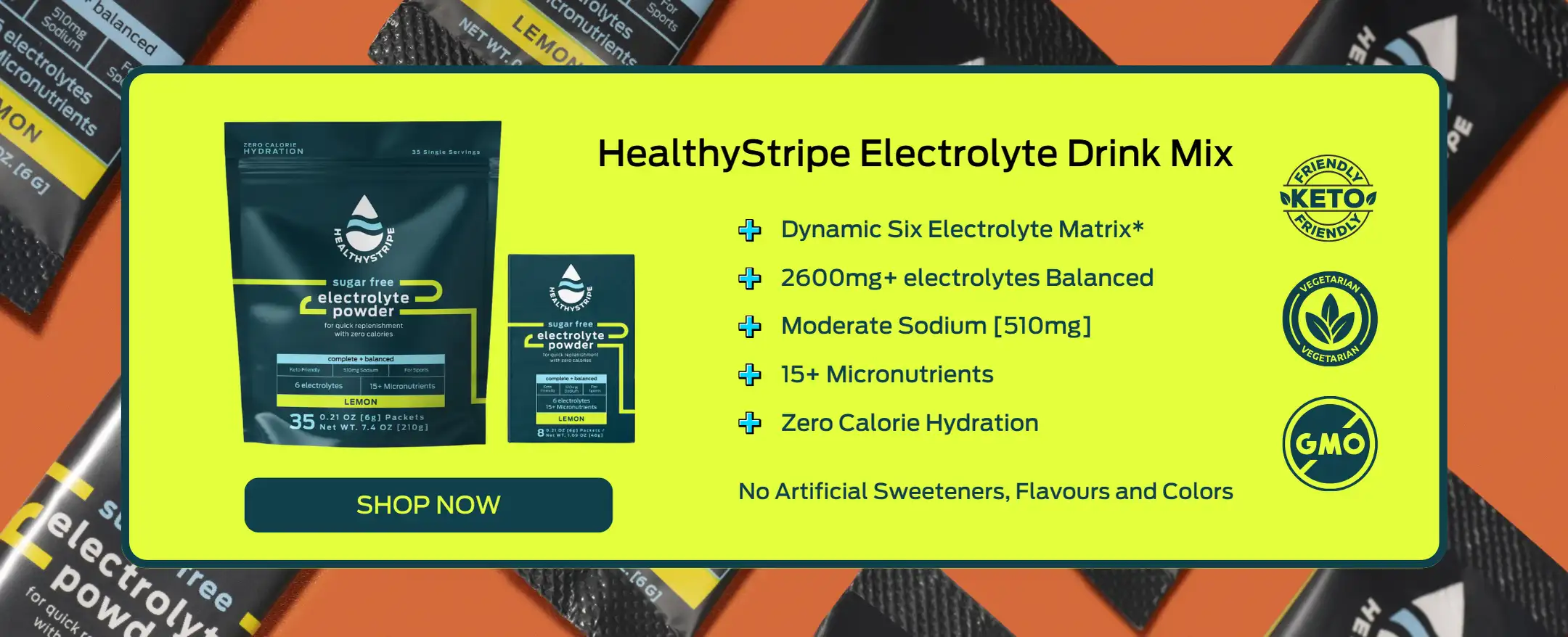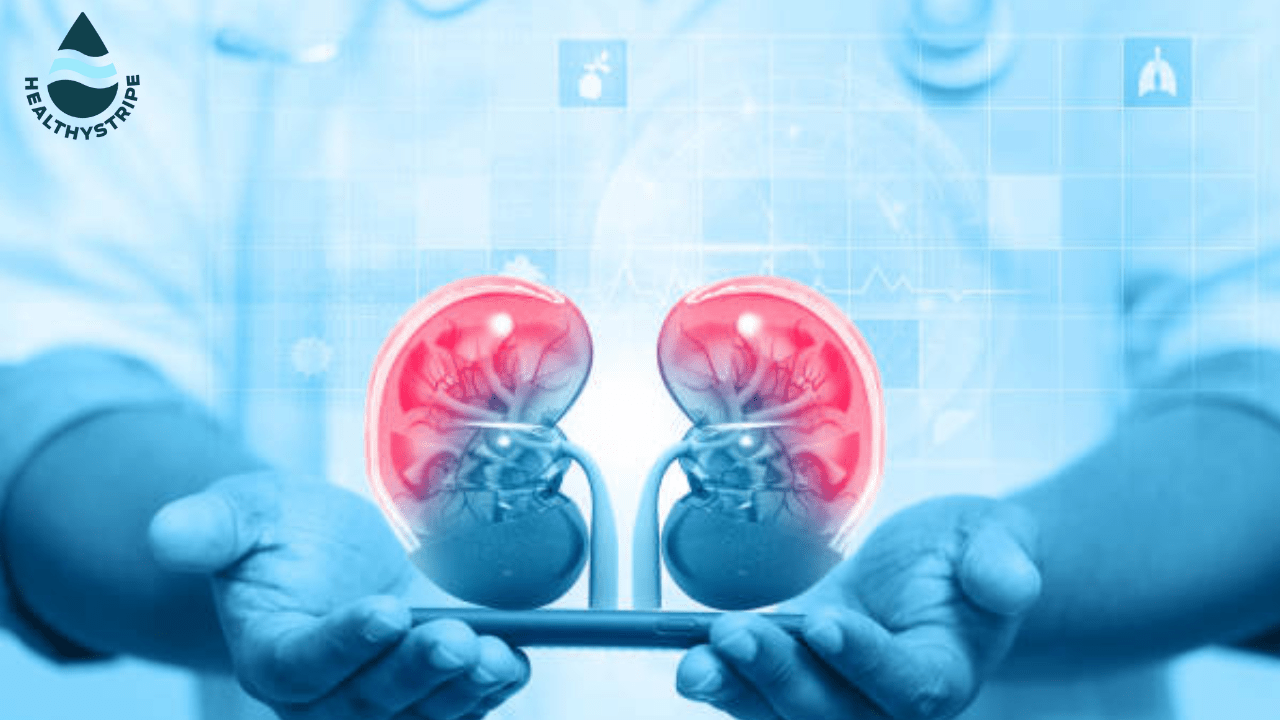Exhaustion and Dehydration: Symptoms, Dangers, and How to Prevent
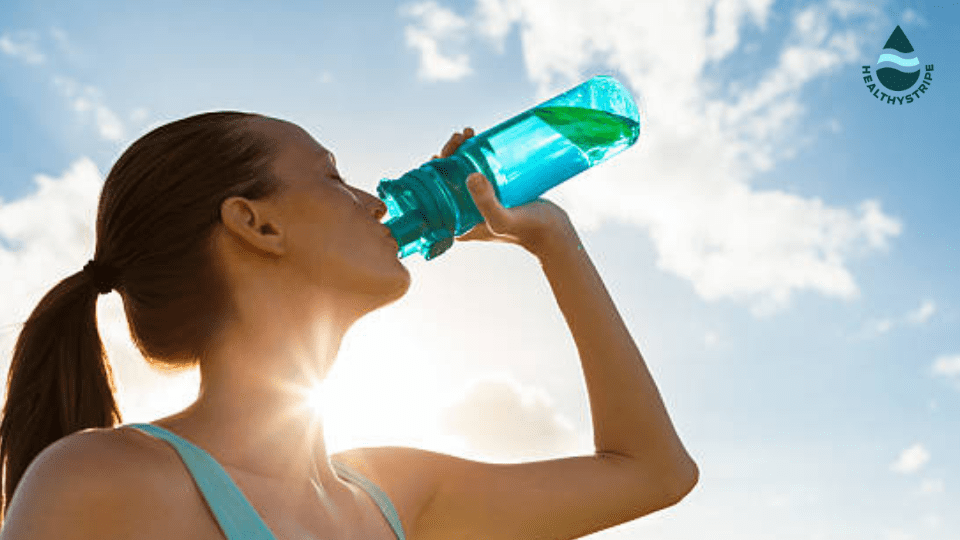
Have you ever felt more tired and exhausted on a hot summer day?
If yes, you probably have already experienced exhaustion symptoms due to dehydration.
No wonder exhaustion and dehydration are certainly linked to each other. When your body does not have enough water, it is unable to cleanse your system properly. When these unwanted substances, i.e., the by-products of metabolism, accumulate in the body, they cause exhaustion and dehydration.
Dehydration and exhaustion can occur in any group but the elderly and children are more vulnerable to them. According to research conducted in the United States of America, the elderly population is 2o to 30% more likely to develop dehydration and fatigue symptoms due to the factors like reduced mobility, inability to perceive thirst, and other illnesses like diabetes and kidney disease.
In this blog, we will find out how exhaustion and dehydration are linked to each other, the signs of exhaustion, and how we can prevent them.
What is Dehydration, and What are the Symptoms of Dehydration?
Dehydration is a state in which your body does not have enough water reserves to continue its normal functions properly.
It occurs when the amount of water leaving the body exceeds the water entering your body. Your body is constantly losing water and electrolytes, mainly through sweating, perspiration, urination, and even defecation. Water is one of the most essential things for its survival.
It should be replenished as soon as it is lost from the body; otherwise, it will leave your body in a state of exhaustion and dehydration. So, there is a continuous need to replace the lost water and electrolytes to maintain electrolyte balance in the body.
Symptoms of Dehydration in Adults:
Although dehydration presents with some typical symptoms, some of them vary with age. The symptoms of dehydration in adults are as follows:
- Sunken eyes
- less frequent Urination
- A small amount of urine with dark color and a strong smell
- Parched lips
- Dry tongue
- Dry skin
- Increased thirst
- Dizziness
- Headache
- Lethargy and exhaustion
- Muscle cramping
- Tachycardia ( Increased heart rate)
- Low blood pressure
- Brain fog
- Delerium
Symptoms of Dehydration in Children:
The elderly and children are more susceptible to dehydration and exhaustion because they can not keep themselves adequately hydrated and communicate properly about their needs. The symptoms of dehydration in children are as follows:
- Less-active irritable child
- A sunken spot on the forehead ( Anterior fontanelle)
- No wet diapers for longer periods of time
- Lack of tears while crying
- Discoloration of hands and feet
- Fever
- Unconsciousness in severe cases
What are the Symptoms of Exhaustion?
Dehydration and heat exhaustion can cause serious health issues if not addressed timely. Water is a critical component of the body for maintaining the hemostatic internal environment. This hemostasis is disturbed because of dehydration, causing heat-related severe illness symptoms. Lack of water also disturbs the electrolyte balance in the body, which can be fatal for human life.
Dehydration and Fatigue Symptoms
Exhaustion can present itself in various forms. One of the main symptoms of exhaustion includes feeling tired all the time, even when you haven’t participated in anything. It can make you feel down and drained. You may lose interest and may not participate in daily activities eagerly. There is always an irritability in your mood, which gets triggered easily. You might find yourself de-motivated and looking for ways to get rid of tasks that you used to enjoy. You might also feel muscle pain and cramping after minute daily life chores like cooking, cleaning, walking, and running. There can be difficulty concentrating, remembering things, and a lack of energy to make decisions.
Heat Exhaustion Symptoms
Any physical activity or exertion worsens the symptoms and these symptoms are likely to be relieved by rest and withdrawal from the physical activity. In children, it is characterized by muscle pain, malaise, and flu-like symptoms. If You experience these symptoms and signs of exhaustion, you might have chronic fatigue.
However, they can also be heat exhaustion symptoms.
Heat-related illness occurs when the outside temperature is very high. Your body lacks a proper amount of fluid and electrolytes; dehydration and heat exhaustion can cause a variety of symptoms that include fatigue, malaise, nausea, vomiting, low blood pressure, anxiety, panic attacks, and even circulatory shock. Heat-related illnesses can pose serious threats to emotional and physical well-being.
Also Read: https://healthystripe.com/blog/heat-exhaustion
Who is More at Risk?
Children and elderly people are more prone to develop dehydration because they have comparatively suppressed thirst mechanisms and thermoregulatory capabilities. Therefore, much more attention should be paid to their hydration status. Hydration requirements vary according to age, gender, climate, and health conditions.
In case of severe dehydration symptoms, rush to the nearby emergency room immediately. Your doctor will assess the dehydration degree and treat you accordingly. Many fluids like dextrose and ringer lactate can help revert dehydration immediately. However, they should always be administered under the supervision of a registered medical practitioner.
The Dangers of Dehydration and Exhaustion
Hydration is essential for the body’s temperature control, i.e., thermoregulation. Without the optimum temperature control, the human body can easily succumb to dehydration and heat exhaustion leading to serious consequences.
Mild Dehydration
Mild levels of dehydration cause your body to lose about 5 to 6% of its fluid. Individuals suffering from it experience decreased endurance, increased fatigue, as well as altered thermoregulatory capacity. This can be detrimental to physical performance, especially for athletes and players.
Dehydration and exhaustion also affect the brain’s capability to process and function properly. It causes mood alteration, decreased cognitive ability, as well as decreased motivation.
Moderate Dehydration
However, moderate dehydration, i.e., loss of 7 to 10% of body fluid, causes the blood pressure to drop due to the absence of enough fluid for the heart to pump. If not treated timely, it can progress to severe dehydration, causing the pulse to drop dangerously.
Severe Dehydration
Severe dehydration can cause very dangerous dehydration and fatigue symptoms, i.e., altered mental state, vomiting, dizziness, loss of consciousness, and even fainting. In grave conditions, severe dehydration can be fatal due to circulatory collapse, especially in children and the elderly population. Hence, dehydration and heat exhaustion can be life-threatening conditions and must be treated carefully.
Heat-Related Illness and Exhaustion
Heat exhaustion can lead to several heat-related illness symptoms.
Let’s have a look at each of them briefly.
A sudden increase in environmental temperature can cause heat syncope, i.e., a condition in which your body’s veins suddenly dilate, causing the pooling of blood in your legs and lower body. This can cause a drastic drop in blood pressure which can even cause sudden cardiac failure. Therefore heat stroke symptoms should never be taken lightly.
Heat cramps are also a common heat stroke symptom. The relative deficiency of important electrolytes like sodium, potassium, magnesium, and chloride causes the body’s muscles to contract involuntarily. This causes heat stroke-related illness symptoms.
Dehydration and exhaustion can also cause tachycardia, delirium, seizures, and even coma.
How to Prevent Dehydration and Exhaustion?
Although Dehydration can be a major contributor to exhaustion, when these two occur simultaneously, they can cause something we call tired dehydration.
1-Increase Fluid Intake
You can prevent dehydration and heat exhaustion by replenishing the water loss carefully. The water and electrolytes that are lost can help prevent heat stroke symptoms when replaced properly.
Obviously, the most important and simple step to prevent dehydration and exhaustion is to drink water regularly. 8 to 10 glasses of water intake every day is recommended.
2-Juicy Fruit and Vegetables Can Do Wonders!
Approximately 20% of our daily intake of water comes from food. So make sure to include Watery fruit and vegetables like oranges, watermelon, pineapple, celery, cucumber, and tomatoes in your diet regularly. Fruit juices and other beverages can also help fight heat stroke symptoms as well as prevent dehydration and exhaustion. Adding a small amount of sugar and salt can also help replenish the loss of electrolytes from the body. However, diabetics and heart and kidney patient should consult their concerned physician before making any changes to their fluid intake and diet.
3-Avoid Strenuous Activities
Exercise and physically challenging jobs should be avoided during peak hours of the day when the temperature is too high. If not possible, the working hours should be decreased in order to prevent heat stroke symptoms in workers.
Adequate ventilation and cooling systems should be installed in all workplaces and educational institutes so that the room temperature remains in control.
4-Rehydrate Yourself
The best way to prevent heat exhaustion and dehydration-like conditions is to rehydrate yourself. Keep your fluid intake up to the mark and wear light and breathable clothes. Avoid any unnecessary visits outside unless absolutely necessary. Before you step outside the house, make sure to drink plenty of water every day. Do not forget to carry water bottles with you. Take baths with cold water frequently to stay fresh.
If you ever feel dizzy, tired, or fatigued, the first thing you should do is to get under a shade immediately. Remove extra layers of clothing and sit under a fan or cooling system. Drink 1 to 2 glasses of water within 10 minutes, if possible. This will make you feel better and prevent heat stroke symptoms.
Conclusion
Heat exhaustion due to dehydration is the most common heat-related illness that presents in emergency rooms every summer. It occurs when the body loses a lot of fluid and electrolytes, leaving the system exhausted and unable to thermoregulate itself.
Heat stroke symptoms can vary from dizziness, tiredness to coma and even circulatory collapse.
When heat-related illnesses co-exist with any medical conditions like diarrhea, vomiting, and diabetes insipidus, they can be life-threatening.
The best way to prevent dehydration, heat exhaustion, and their adverse effects is to keep yourself as much hydrated as possible, especially on hot summer days and when you’re working directly in the sunlight.
Frequently Asked Questions
How Can you Tell If you’re Dehydrated or Exhausted?
Is Fatigue a Sign of Dehydration?
Yes, fatigue is one of the most common signs of dehydration. You are more likely to feel exhaustion symptoms when your body is dehydrated. It makes you feel dizzy, lethargic, nauseous, and light-headed.
Dehydration causes disturbance in your body’s normal metabolic processes and water and electrolyte balance which alters the body’s functions and results in dehydration and exhaustion.
What Is the Fastest Way to Cure Dehydration?
Drinking plenty of water and sitting in a cool place is the fastest way to cure dehydration and decrease the body temperature to an optimum level. During sweating and urination, your body loses essential electrolytes like sodium, potassium, chloride, and water. Maintain an electrolyte balance to cure dehydration and consult your doctor immediately in case of severe dehydration.
What to Do for Heat Exhaustion and Dehydration?
The first step to manage dehydration and exhaustion is drinking water along with ORS ( Oral rehydration solution), which contains glucose, salts, and other essential nutrient that can help rehydrate the body and treat tired dehydration. In case of severe heat-related illnesses symptoms, IV hydration might be needed, which is given under medical supervision.
How to Treat Exhaustion and Dehydration?
The treatment of exhaustion and dehydration depends upon the severity of the condition, age, and the patient’s health status. In adults, mild cases can be treated at home with adequate hydration and rest. However, children and elderly people need more attention since they can succumb to it easily. Immediate medical help, IV fluid resuscitation, and complete bed rest is given until the heat exhaustion symptoms improve.




